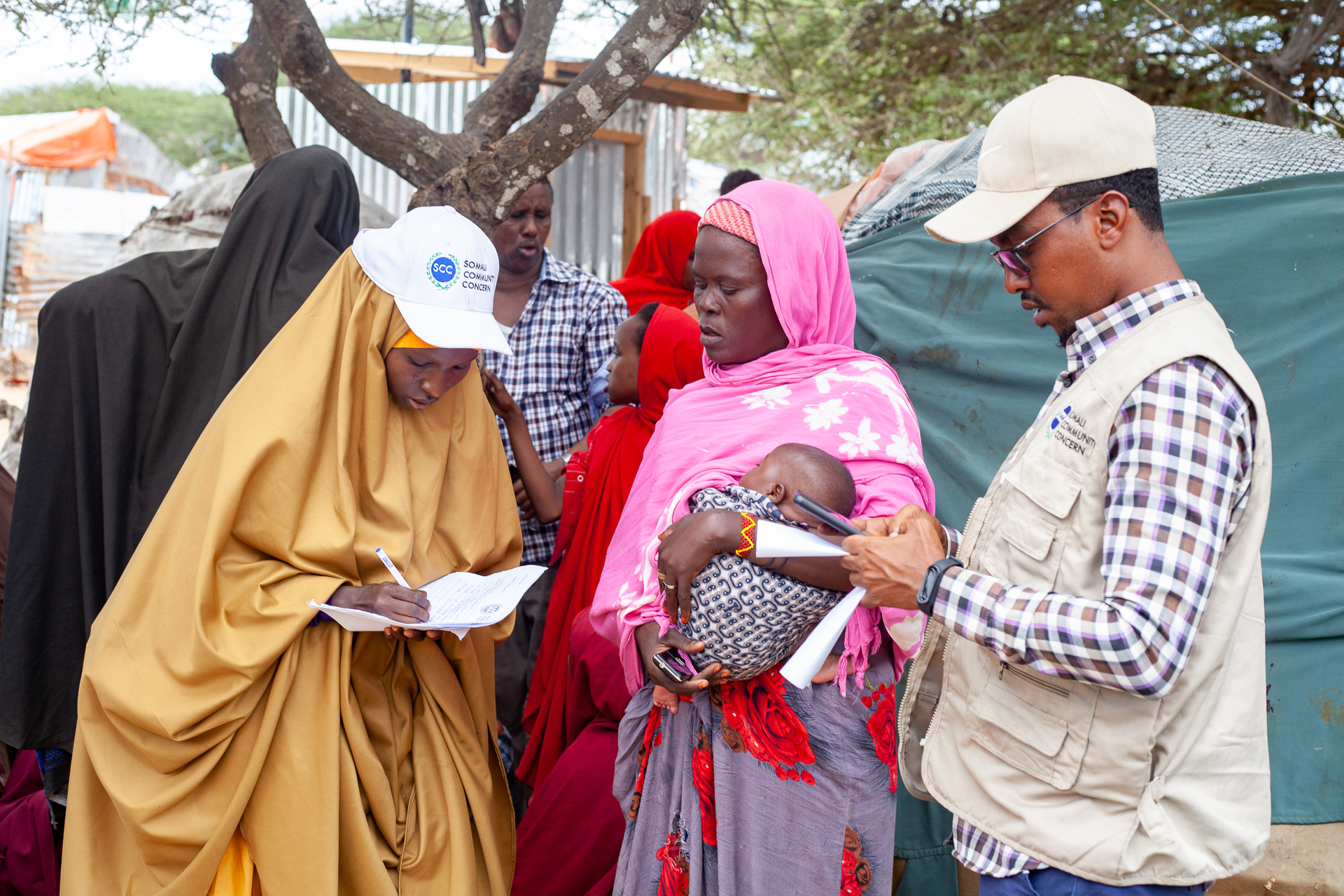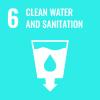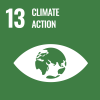Mogadishu, 28 October 2022 – As Somalia experiences its worst drought in four decades, more than 1.1 million people have already been forced to pack their belongings and move to other areas of the country to escape thirst and hunger. The International Organization for Migration (IOM) and partners are reaching those newly displaced with essential support to help them make it through one of the toughest experiences of their lives.
Ardo Omar, 42, is one of them. One morning, she had to tell her six children they would have to leave their village in Lower Shabelle in southern Somalia – a moment she had hoped would never come. The mother took her family on a long journey by foot to Baidoa, expecting to find food or water as their animals no longer provided enough resources for their survival.
She was not alone. Ardo’s whole village has been devastated by the extreme drought. The crops in the area failed and her neighbour’s animals died, an all too familiar story across Somalia.

Displaced persons in Daynile, Mogadishu, receive water from a truck, thanks to an IOM activity in September. Photo: IOM/Ismail Salad Osman
Most of those newly displaced by the drought have moved from rural areas to cities like Baidoa and Mogadishu. Both cities have hosted displaced populations throughout the years, and they continue to be the last resort for many people needing support due to the permanent presence of humanitarian organizations.
At first, reaching Baidoa did not improve Ardo’s family’s situation. They had arrived in a place already hosting thousands of people like them. All in need of urgent support.
“We arrived in the settlement of Hagardiid and found that there was also not enough water for everyone, and the sanitation facilities were broken,” said Ardo from her makeshift shelter made of plastics, fabrics and tree branches in Baidoa.

IOM assesses the needs and registers displaced people in need of assistance in Daynile, Mogadishu. Photo: IOM/Ismail Salad Osman
Approximately 7,000 people arrive in Baidoa every week while another 7,500 a week are settling in Mogadishu, according to IOM. The needs are immense, and the resources are limited, making it difficult to support all those in need.
Naima Said expressed with sadness the hunger her family is facing in Daynile, a district in Mogadishu hosting a large displacement settlement for those escaping the drought. “We are only eating one meal per day since we arrived here.”
IOM is racing to assist displaced and vulnerable people to save lives and avert famine. To achieve this, IOM launched a coordinated response with UNICEF, the World Food Programme and other local partners known as the minimum response package (MRP). The package consists of immediate life-saving relief to the most vulnerable and includes water, hygiene kits, cash, shelter, and nutrition supplements.

IOM registers people for a distribution of hygiene kits and water in Daynile in September. Photo: IOM/Ismail Salad Osman
As water sources continue to dry up and rains are failing, IOM teams are also organizing weekly water distributions through trucks in areas hosting the largest numbers of internally displaced persons (IDPs), like Mogadishu and Baidoa, as part of the life-saving package.
“Before IOM brought water to the site, the situation was terrible. People lacked water to drink, wash, and cook food. But today, water is plenty at our home,” said Sureeja, 42 years old, who also lives in Daynile.
For 30 days, Sureeja and her children received 90 litres of safe water every day. At least 41,586 people have received a minimum of 7.5 litres per day per person since the project started.

One of the women who benefited from IOM's life-saving package in Mogadishu. Photo: IOM/Ismail Salad Osman
In Daynile, less than 45 per cent of the residents have access to clean and safe water. The district north of the capital is one of the areas in the country most affected by cholera and acute watery diarrhoea. Limited services and an exponential increase in water prices are forcing women and young girls to walk long distances to the nearest and safest water point, increasing their exposure to gender-based violence.
For Naima’s young daughters, the lack of sanitation facilities means that they are forced to go in search of secluded places. A necessity people with access to latrines and toilets often don’t think twice about. “This situation has increased their exposure to harassment, abuse and violence – particularly after nightfall,” the mother explained.
Through the minimum response package, partners are expanding the community’s access to sanitation. At least 492 latrines have been constructed in Mogadishu and another 704 in Baidoa since May 2022, and at least 50,000 people have so far benefited from the improved sanitation facilities. In addition, community sanitation committees have been formed to ensure sustainability and community ownership of the newly established sanitation facilities.

The informal settlement of Daynile in Mogadishu currently hosts tens of thousands of people displaced by the severe drought. Photo: IOM/Ismail Salad Osman
“Now that the latrines have been constructed, my family and the community feel protected from sickness and other threats,” said Naima. While in Baidoa, Ardo and her family received hygiene kits.
“We are distributing hygiene kits, including buckets, jerry cans, aqua tabs, soap and sanitary pads,” said Ahmed Abdulkadir, a member of IOM’s team in Baidoa.
These hygiene kits help ensure good sanitation and enhance people’s dignity despite the difficult circumstances they are living in, especially for women and girls.
Through the minimum response package, IOM and partners have reached more than 27,000 people since May 2022 with life-saving assistance and are hoping to reach another 10,000 before the end of this year.
The MRP project is made possible thanks to generous funding from the UK´s Foreign, Commonwealth & Development Office. The European Union and USAID's Bureau for Humanitarian Assistance (BHA) are also contributors to the project.
Text by Claudia Rosel, Media and Communications Officer, IOM Somalia: cbarrios@iom.int




